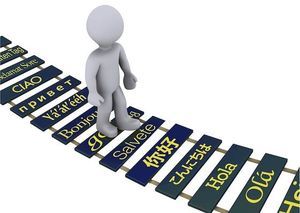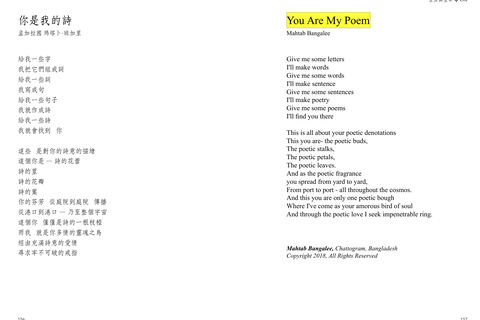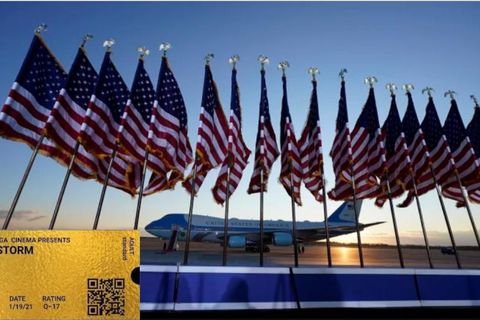Translation: Bridge of Different Cultures

“all the translators are ambassadors between cultures, and act as bridges of connection.” By Yiyan Han (c), 2020-11-11
One of fellow English writers asks me when I translate the poems do I translate word for word or do I have to change some words? This question applies to any language translation really, but here I specifically talk about my work between Chinese and English.
A short answer is yes or no. The majority of words can be translated literally, like Sun, Moon and so on. But there are many words and phrases that can only be translated correctly if one has a good understanding of both culture, history, language and so on. One famous example is "Milky Way" in English, and we Chinese call it "銀河 (literally, Silver River)". The name is clearly very different, because the ancient Chinese were good and keen astronomers then, and they had named the vast amount of objects in the sky ahead of the rest of world.
As in any language, the same word might have different meaning depending on how it’s used in a composite phrase or sentence. Let me use one of the simplest Chinese words, 東西, to explain in some detail as follows.
東西:Google or some other letter translator might tell you – east west. Yes, these are their literal meaning individually. But when in a word, it actually means "thing" or "things"! Simple to understand? Good. Let me give you a few slightly complicated examples then to challenge your brain.
東西南北:Aha! Easy, the letters just mean east, west, south, and north, the four directions. If prefixing 不分(don’t distinguish)to form a phrase 不分東西南北, then it normally means “ don’t distinguish good from bad, or right from wrong”. However, if prefixing 不知道(don’t know) to form a phrase 不知道東西南北, then it could mean “don’t know nothing” or “lost in direction, either, eg in a forest, or in one’s life”.
Confused? Oh no. Let me to make you even confused! If prefixing 不是(no, not, isn’t or aren’t) to form a phrase 不是東西, then it means, rather rudely, “no good” or “a rogue or bad person”.
Okay, enough for today! In my view, all the translators are ambassadors between cultures, and act as bridges of connection. I’m just one of them, proudly.




Comments
Wow, Yiyan. That is very interesting. Soooo very complicated. It is no wonder there is a phrase "it got lost in translation" ... but With clever translators like yourself around this need never happen. It's a tricky thing to do it seems, translating. Very well done for all you translate, my friend. Kudos to you. And a medal 🥇 you deserve it. Thank you for explaining this x
"it got lost in translation" - You're absolutely right. The translation is a hard work, tedious and time consuming as well - to verify a single word does takes time sometimes! Also translation is a kind of recreation. Thanks for your reading and comment.
Aww...you are most welcome. Thank YOU for explaining so well and give us an idea as to how difficult translating actually is x
Yes, a very interesting read, food for thought Yiyan, keep it coming
X
Many thanks, Gerard, for your liking ;))